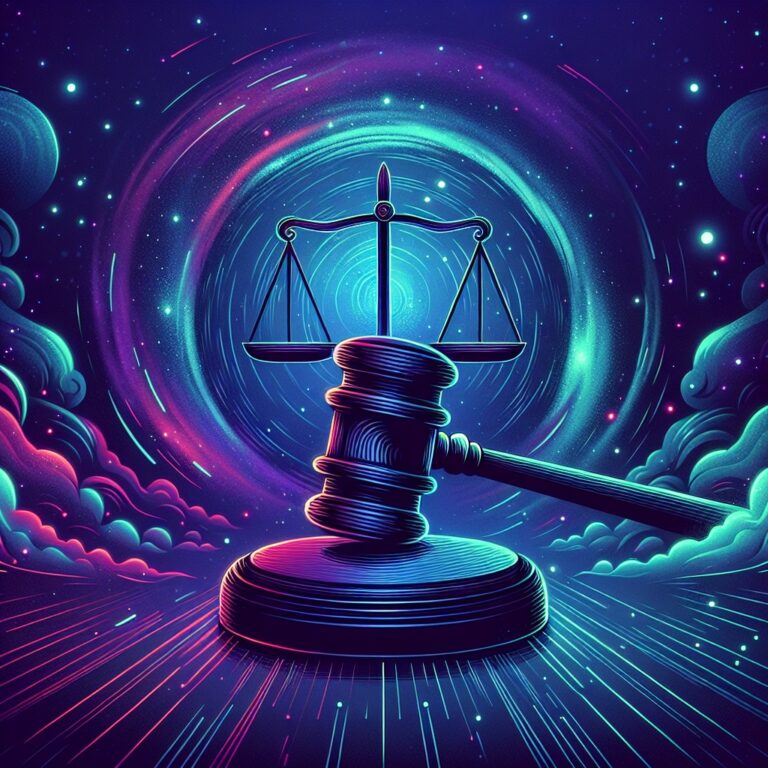Do Kwon, the enigmatic figure at the center of the Terra crypto project’s dramatic downfall, is poised to enter a guilty plea on Tuesday, according to court documents. This development marks a pivotal moment in the legal saga surrounding the $40 billion debacle that sent shockwaves through the cryptocurrency world.
The Ripple Effect of Terra’s Collapse
The collapse of Terra was nothing short of a seismic event in the digital currency landscape. It rattled investors, regulators, and industry insiders alike, leaving a trail of financial ruin and shattered confidence. As Kwon stands on the brink of admitting guilt, the ramifications of Terra’s implosion continue to reverberate across the market.
“Terra’s collapse was a wake-up call for everyone in the crypto space,” says Alicia Monroe, a blockchain analyst at CryptoSage. “It exposed vulnerabilities that many had either overlooked or underestimated.” The project, once hailed as a groundbreaking innovation, relied on a complex algorithmic stablecoin mechanism that ultimately proved unsustainable. As explored in our recent coverage of a crypto exec’s settlement over TerraUSD, the fallout from Terra’s collapse has led to significant legal and financial repercussions for those involved.
Kwon’s decision to plead guilty could bring some closure to those affected, but it also raises questions about the future of algorithmic stablecoins. Many in the industry are scrutinizing the lessons learned from Terra’s failure, hoping to prevent similar catastrophes.
A Legal Battle Unfolds
As Kwon prepares to face the court, the legal proceedings have drawn significant attention. The charges against him include fraud and misleading investors—serious allegations that reflect the gravity of the situation. Legal experts are watching closely, anticipating the potential consequences for Kwon and the broader crypto community.
“In cases like this, the outcome can set a precedent for how similar cases are handled in the future,” notes Robert Chen, a cryptocurrency legal advisor. “It could influence regulatory approaches and investor protections going forward.” For a deeper dive into the regulatory implications, see our coverage of the SEC’s latest guidance after the Ripple case.
The crypto industry, often characterized by its rapid innovation and lack of oversight, is now under increased scrutiny from regulators worldwide. The Terra debacle has intensified calls for clearer regulatory frameworks to safeguard investors and ensure transparency.
The Market’s Response
In the wake of Terra’s collapse, the cryptocurrency market experienced turbulence. Prices fluctuated wildly as investors grappled with uncertainty and fear. While some tokens have since stabilized, the shadow of Terra’s downfall continues to loom large.
“Investor confidence is still recovering,” says Monroe. “The market has shown resilience, but trust is hard to rebuild once it’s been broken.” The incident underscored the need for due diligence and risk assessment in an industry known for its volatility.
The plea from Kwon may bring some stability, as it signals a step towards accountability. However, the broader implications for the market remain to be seen. Will this case serve as a catalyst for reform, or will it be a cautionary tale that fades into the annals of crypto history?
Looking Ahead
As the court date approaches, all eyes are on Kwon and the legal proceedings that could shape the future of cryptocurrency regulation. The case underscores the complexities of navigating an industry at the intersection of technology and finance.
The outcome of this legal battle could have far-reaching consequences, not only for Kwon and the Terra project but for the entire crypto ecosystem. It raises critical questions about innovation, accountability, and the role of regulation in a rapidly evolving market.
In a world where digital currencies are becoming increasingly mainstream, the lessons from Terra’s collapse are more pertinent than ever. As stakeholders await the court’s decision, the hope is that the industry will emerge stronger, wiser, and better equipped to handle the challenges ahead.
The Terra case is a stark reminder of the risks and rewards inherent in the crypto space. As the industry continues to grow and evolve, the need for vigilance and transparency has never been more crucial. The coming days will undoubtedly be pivotal, not just for Kwon, but for everyone invested in the future of digital finance.
Source
This article is based on: Do Kwon Expected to Plead Guilty Over $40 Billion Terra Collapse
Further Reading
Deepen your understanding with these related articles:
- SEC‘s guidance on liquid staking tokens a win for DeFi, institutions
- BTSE Announces Strategic Investment in Stable to Advance Blockchain Innovation and Support Stablecoin Adoption
- Ripple Criticizes Draft Crypto Market Structure Bill: Details

Steve Gregory is a lawyer in the United States who specializes in licensing for cryptocurrency companies and products. Steve began his career as an attorney in 2015 but made the switch to working in cryptocurrency full time shortly after joining the original team at Gemini Trust Company, an early cryptocurrency exchange based in New York City. Steve then joined CEX.io and was able to launch their regulated US-based cryptocurrency. Steve then went on to become the CEO at currency.com when he ran for four years and was able to lead currency.com to being fully acquired in 2025.


